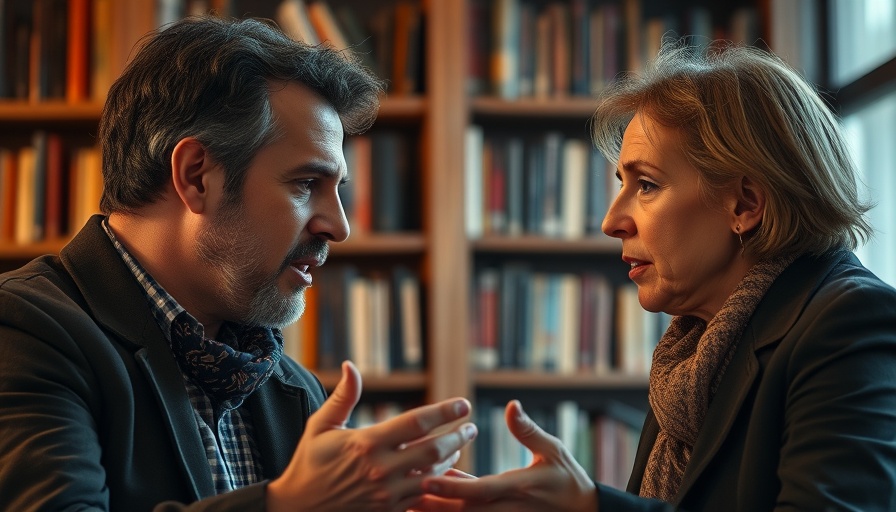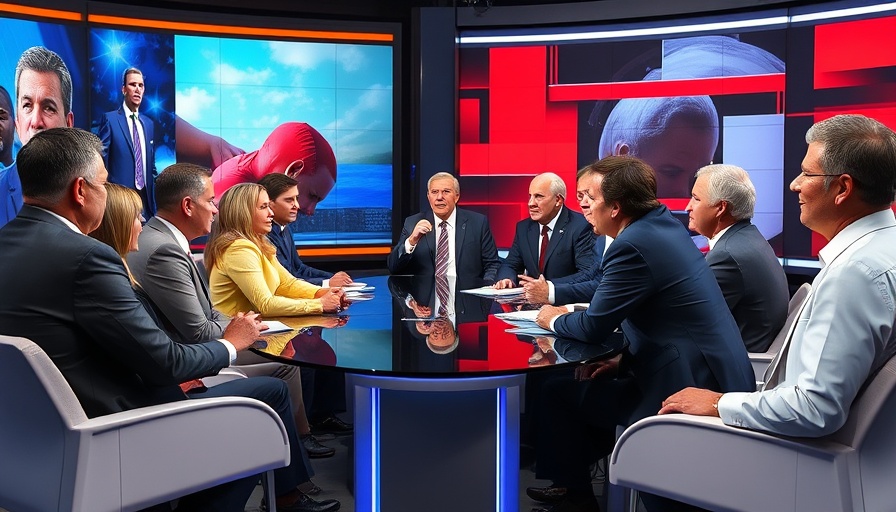
Understanding the Class and Economic Divide in America
In today’s political landscape, it’s not uncommon to hear terms like polarization and division echoed throughout media channels. But in a recent interview with Batya Ungar-Sargon, she presents a thought-provoking claim: the real divide in America isn’t political; it’s class-based. This perspective unveils the complexities hidden beneath heated debates surrounding immigration, abortion, and economic policies that affect the working class.
In Batya Ungar-Sargon Makes Konstatine Kisin GO SILENT when she said THIS about the Democrat ELITES..., the discussion dives into the crucial insights about class and economic issues that sparked deeper analysis on our end.
The Truth About Immigration and Its Economic Impact
Ungar-Sargon’s insights reveal a troubling reality as she discusses how mass immigration has become entwined with economic narratives that benefit only the elite. By stating that “we are importing slaves and sex slaves,” she highlights the human cost embedded within policies that often prioritize GDP growth over the well-being of American citizens. The increase in immigrant labor has inadvertently created competition for jobs, which many working-class Americans feel acutely amidst rising living costs.
Research supports her claims that approximately 15% of the current U.S. population is foreign-born, the highest figure recorded in history. This increase in immigration correlates with a decline in wages among working-class citizens, further adding to their struggles. Large businesses may benefit from cheaper labor, but this ultimately shifts economic burdens onto the very citizens who built the country.
Moderate Voices and Unrepresented Opinions
Intriguingly, Ungar-Sargon emphasizes that many working-class Americans hold moderate views on contentious issues like abortion and gun control. While polarizing narratives paint individuals as either staunchly pro-life or pro-choice, the nuances often get lost in media portrayals. Polling shows that a significant majority of Americans—regardless of label—support reasonable restrictions on abortion and want stricter gun laws without infringing on Second Amendment rights. This disconnect between the electorate's true opinions and political representation highlights a vast 'forgotten middle' that politicians often overlook.
The Rise of Educational Elitism
Central to the class divide is the increasing influence of education as a gatekeeper to economic success. Ungar-Sargon’s point that having a college degree now correlates with a higher chance of achieving the American dream is unsettling. Those without access to higher education find themselves excluded from opportunities that were once available through vocational training and manual labor jobs. In fact, policies from past administrations have contributed to this disparity by dismantling programs that traditionally helped working-class Americans ascend economically.
The Democratic Party’s alignment with educated elites, in contrast to a Republican Party that attracts working-class voters, only deepens this divide. The emphasis on educational qualifications undermines the value of hard work and resilience—a narrative championed by many within the working class.
Globalization: Opportunity or Threat?
While globalization has opened doors and promoted cultural exchange, it also poses challenges predominantly felt by the working-class demographic. The continued outsourcing of jobs and reliance on foreign labor has resulted in economic conditions where American workers compete with those overseas willing to accept lower wages. Ungar-Sargon argues that the false perception of prosperity, fueled by GDP increases, obscures the devastating reality faced by many households struggling to maintain financial stability.
What the Future Holds: A Call for Economic Fairness
The discourse surrounding these issues must evolve to reflect the true sentiments of the American populace. It’s imperative to recognize the interests of the working class, which often yield radical solutions that transcend traditional party lines. Understanding the class divide instead of focusing on superficial political divisions may be the key to rebuilding a more equitable society.
Taking Action: How Can We Advocate for Change?
As members of the MAGA movement and advocates for an America First policy, it is crucial to challenge the narratives that pit Americans against one another. By promoting conversations that uplift working-class concerns—such as adequate job opportunities, fair wages, and immigration reform—we can reshape the political landscape to serve the many rather than the few. Each individual has the power to educate themselves, engage with their communities, and hold leaders accountable to ensure that their voices are heard.
By insisting that our government prioritize the needs of American citizens and address the fundamental issues highlighted by Ungar-Sargon, we can start bridging divides and finding solutions that truly reflect the desires and needs of the middle class.
 Add Row
Add Row  Add
Add 




 Add Row
Add Row  Add
Add 

Write A Comment